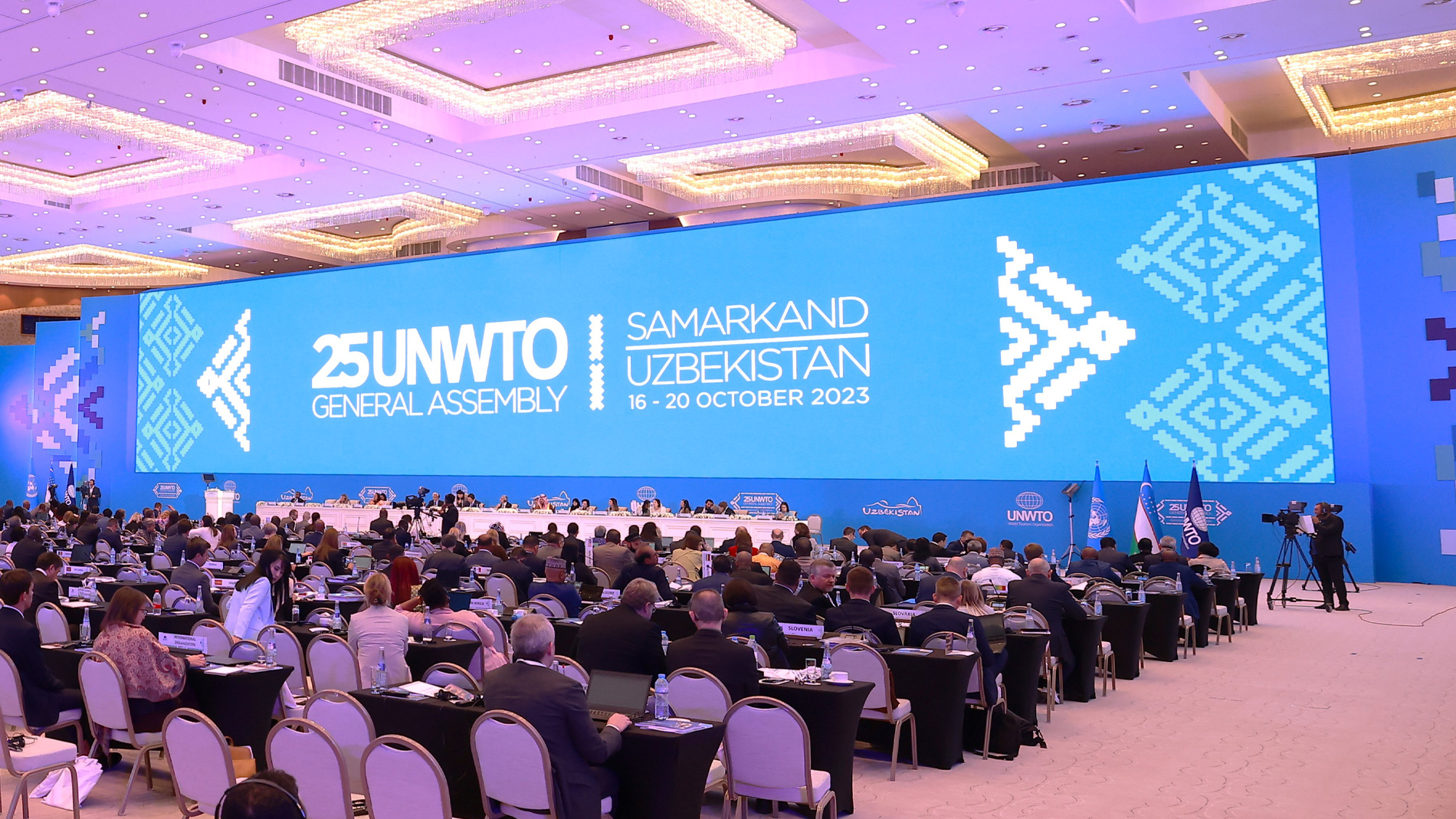
The 25th United Nations World Tourism Organisation (UNWTO) General Assembly which took place in Samarkand, Uzbekistan from October 16th – 20th 2023 and which is available on YouTube, was a clear call for Africa to prioritize tourism education.
The six lessons picked from presentations by the General Secretary and other panelists are worth sharing with our EduTimes Africa readers worldwide, so further effort can be made to improve the tourism education sector on the continent.
Tourism education represents a broad range of products and services related to academic studies, skill enhancement holidays, career development courses, language courses among others.
Early introduction of tourism education in our education systems.
Most countries on the continent haven’t revised the primary and higher education curriculum and those that have done so, haven’t included tourism as a subject. Only a few countries like Philippines and Zambia have done so. Our people must be taught about tourism from a young age so they can appreciate its benefits to their countries, which includes but is not limited to it being a source of foreign exchange.
Tourism education in Higher institutions of learning.
A Bachelor’s degree in Business Administration at most African universities will have triple the number of admissions compared to the admissions for tourism simply because tourism attracts far less students. Career counseling departments at schools and practitioners in the civil society need to collaborate so as to remove the bias regarding tourism studies.
Kabale University here in Uganda recently launched an Institute of Tourism and Hospitality Management to improve access to tourism studies but more effort like this is needed to significantly increase interest across the continent.
Entrepreneurship studies is compulsory in many higher institutions in Africa and this actually presents an opportunity to include tourism as a core course.
The flexible three-year BSc in International Sustainable Tourism programme developed by UNWTO and a Swiss university is clear evidence that strong open and distance learning policies and infrastructure should be put in place for tourism courses. The first batch will study in Madrid remotely for two years and then in Switzerland for the final year.
Since it may be a challenge for our universities and other higher institutions offering tourism to offer an exchange programme between countries, maybe they can at least offer a remote semester and an exchange programme between institutions and industries in different areas of the country instead. This would at least enhance the experience provide the students with some exposure. And as learning methods across the globe are all going green and digital, increased investment in relevant infrastructure to support it will be required.
Employment Potential of tourism.
The employment potential of tourism is projected to reach over 400 million people worldwide by 2033 and the travel and tourism revenue, at an annual growth rate of 6.78 %, is projected to attain a market value of US28 billion by 2027.
With such potential, we must task our leaders at all levels to tackle the tourism question with deliberate plans to harness the sector so our communities can tap into the value chain.
Investment in tourism Education.
Various countries are boldly increasing their investment in tourism education because of the realisation that human resources capital is the bedrock of making tourism a bigger contributor to the national GDP. Perhaps taking the lead globally, the Saudi Arabian leadership has committed to investing over $100 million in tourism education and this should serve as a wakeup call to leaders on the African continent. In addition, investing in tourism education should not be seen as something that should be left exclusively for national governments to do. The private sector also has a major role to play in this sector if it is to get to where it should be. For example the Great Lakes Safaris Foundation, through its Café Kibaale, offers free hospitality hands-on training to the host community. This is a good start and a useful initiative.
Tourism, globally, is a sector that is driven by collaborations and partnerships.
Be it at the local, national or international level, all stakeholders such as educational institutions, both in the private and public sector, must initiate and retain strategic partnerships.
UNWTO has partnered with Uzbekistan to establish the Samarkand Academy and the Riyad school of Tourism and Hospitality. These are clearly the result of an agreement between the multilateral organisation and the country’s government and that’s why it’s gladdening to know that my country Uganda, has renewed its membership. Across the continent, stakeholders must create an environment for strategic public/private partnerships. There is also an urgent need to upscale existing partnerships.
The link between TVET and Tourism.
The quality of technical and vocational education and training directly impacts on the quality of tourism experiences and tourist satisfaction which will also drive foreign exchange revenue. From the property developers, to road construction technicians, to the chefs in the kitchen, aircraft technicians and tour guides just to mention a few, their skill level which will in turn determine tourist satisfaction, is critical for the sector to prosper.
About 882,000 tourism jobs per year will require vocational training by 2030, therefore TVET and the tourism sector must work hand in hand, so together, they can positively and significantly impact the continent’s social economic transformation through a vibrant tourism sector. I therefore implore all stakeholders in the education sector to consider the recommendations in the UNWTO Education Toolkit as we seek to improve our tourism sector through tourism education.

































































 EduTimes Africa, a product of Education Times Africa, is a magazine publication that aims to lend its support to close the yawning gap in Africa's educational development.
EduTimes Africa, a product of Education Times Africa, is a magazine publication that aims to lend its support to close the yawning gap in Africa's educational development.


